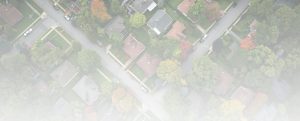Jacksonville, FL Multifamily Market Report
Market Overview
The Jacksonville metropolitan area’s multifamily market is experiencing increased supply pressure. Developers are taking advantage of the robust market conditions by accelerating the pace of multifamily construction. The current development of 10,000 units is unprecedented, and it comes after the delivery of 5,600 apartments in the past two years. Jacksonville’s economy has not only recovered, but it has also experienced significant expansion, with population growth reaching one percent over the past year, one of the fastest growth rates in the U.S. This expansion made the market suitable for development, resulting in rising rental prices.
Highlights
- Despite annual rent growth dropping to 1.7%, Jacksonville’s average asking rent of $1,480 per month offers a significant discount from national rates and larger coastal markets.
- Vacancy in Jacksonville rose 2.9% in the last year to 9.8%, with additional units under construction poised to further stress supply and demand dynamics.
- Jacksonville has experienced significant population and job growth in the last five years, contributing to the area’s high demand for multifamily housing.
- In 2022, around 5,800 new units were completed, and this additional housing supply surpassed renters’ demand rate by more than five times.
Rents | Vacancy | Construction
The demand for multifamily housing in Jacksonville has been propelled by exceptional population and job growth over the past five years, making it one of the strongest in the nation.
Jacksonville is experiencing one of its largest influxes of new supply in history, with a 20 percent increase in market-rate multifamily inventory over the past five years and an additional 10,000 units currently being constructed, representing a 9.3 percent expansion of the inventory. In addition to this new supply, seasonal fluctuations in demand have resulted in Jacksonville’s vacancy rate rising by over 300 basis points to 9.8 percent in the past year. This trend is expected to continue in 2023 as absorption rates are projected to be one-third the rate of new properties. Although Jacksonville is one of the fastest-growing metros in the country, the upcoming delivery of units will result in an imbalance between supply and demand, causing vacancy rates to surpass the historical average by the end of 2023. The yearly increase in rental rates in Jacksonville has dropped below the national average at 1.7 percent. However, the average rent amount in Jacksonville, which is $1,480 per month, is significantly lower than national rates and larger coastal markets, providing renters with a substantial discount.
Sales
In 2021, investment activity in Jacksonville was strong, and that trend followed in 2022 with a total transaction volume of $2.1 billion. The average price per unit also increased by approximately five percent throughout the year. In recent years, the market has attracted institutional and private equity buyers and national and international interests, leading to private and local owners being net sellers. Private equity and institutional investors have accounted for roughly 60 percent of all sales volume in the past 12 months. Jacksonville has maintained an annual sales volume of over $1.2 billion for five years in a row. It has been a popular target for multifamily investors due to its high liquidity. Market cap rates have considerably decreased over the past 10 years, dropping below the National Index rate in 2020 and continuing to compress to 4.6 percent.
The sales volume was strong in 2022, setting a record high and totaling $2.1 billion.
Jacksonville by the Numbers
- Units Under Construction: 10,103
- Units Delivered in 12 Months: 5,688
- Vacancy Rate % Change YOY: 3.3%
- Asking Rent Growth YOY: 1.7%
- Average Price Per Unit: $195,000
- Sales Volume 12-Month: $2.1 Billion
- Sale Comparables 12-Month: 82









